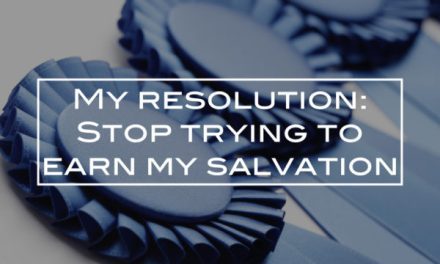I’ve heard many people who left religion say that they’re sick of hypocrites, citing atrocities of the medieval crusades, an unloving Church member, and anything in between.
What I’ve seen even more of is brothers and sisters in Christ attacking opposing views with biased, emotional, and personal arguments. Though perhaps true, are ad hominems like, “Bin Laden is proof Islam is evil!” the best way to reach anyone? Even with positive points; a Christian helping a homeless man does not validate Christianity any more than a peaceful Muslim makes Islam peaceful.
We expect others to put up with our fallacies while refusing to accept theirs.
With that said, I’d like to make three points:
1. When we use any argument but simple truth, our side is the one damaged.
When those we disagree with stoop to fabricating data, misrepresentation, or just plain bullying, we see it. Not only that, but we also point it out and mock what was said and anyone that said it. What makes us think that isn’t universal – that comments made from bias and anger instead of love and truth can’t be seen for what they are? We only hurt ourselves.
2. We have to judge the belief system, not the believers.
If the world only knew about Christ from my example, people would have to conclude that Christianity is a hopelessly flawed system. As hard as I try, I’m nowhere near the perfection of God’s plan. I need people to see past me to Christ. Matthew 7:12 says “So whatever you wish that others would do to you, do also to them, for this is the Law and the Prophets.” In the same way, when we apply the golden rule we’ll judge a belief system by just that: Islam by the Quran, Mormonism by the Book of Mormon, and so on. Showing respect rather than hate will open far more doors to the truth. We don’t have to run from studying or being studied, because we’re seeking the truth (John 8:32).
3. The world is going to judge our beliefs by our actions.
As much as it’s our Christian duty to be fair and logical when evaluating ourselves and others, we have to realize that the world won’t live by that standard. We are going to be judged based on our example. Far more serious is that Christ will be viewed through our example. We are the light of the world (Matt. 5:14) and we’ve been commissioned to let others know that we follow Him by our love (John 13:35)
So before we make comments, we need to filter them through Philippians 4:8-9. If it won’t be edifying to believers and isn’t put in a way that would open doors for others, perhaps silence is a better choice. We must speak the truth, but pay attention to how we do so (Ephesians 4:15).
By Luke Jensen




